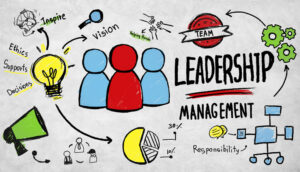Sirisha Peters, L&D Professional and Leadership Coach, explains how empathy-driven coaching can help you nurture resilient contact centre team leaders.
Adapting to Rapid Technological Changes
The orchestra of modern contact centres resonates with the symphonies of AI-powered chatbots, analytics-driven insights, and automation’s rhythmic efficiency.
Yet, amidst these technological crescendos, it’s the emotional intelligence of team leaders that harmonizes these elements into seamless customer experiences.

Curiosity as a Compass
Cultivate a curiosity-driven mindset within your team leaders. Nudge them to embark on a journey of exploration into new technologies.
Let them know that curiosity is not just about understanding the mechanics, but about how these tools emotionally resonate with customers.
Empower them to weave the melody of technology with the empathy that transcends it.
Emotional Integration of Technology
Recognize that technology isn’t merely a set of tools but an emotional bridge. Coach your team leaders to understand the fears and expectations their teams might have about technology adoption.
Encourage them to facilitate open dialogues where these emotions are acknowledged and addressed, creating a nurturing environment where fears can transform into enthusiasm.
Remote Work and Virtual Leadership
The COVID-19 pandemic unveiled a new chapter in leadership – the realm of virtual connection.
Team leaders who once thrived on face-to-face interactions must now navigate the digital expanse, where emotional connection is built on virtual vibrations.
Personalized Virtual Connection
Understand that virtual leadership requires personalized efforts to connect. Encourage your team leaders to have individual check-ins that go beyond work-related discussions.
Enquire about their well-being, challenges, and aspirations, making them feel seen and heard amidst the digital distance.
If you are looking for advice to improve your virtual onboarding experience, read our article: Simple Ways to Give Remote Workers a Warm ‘Virtual’ Welcome
Embracing Vulnerability
Coach your team leaders to embrace vulnerability in virtual interactions. This involves sharing their own struggles, uncertainties, and even joys. Vulnerability creates a bridge of authenticity that fosters trust and rapport within remote teams.
Balancing Metrics and Employee Wellbeing
The dance between metrics and wellbeing is a delicate one, akin to a tightrope walker’s balance. The emotional resilience of team leaders is the stabilizing force that prevents a fall from either side.

Metrics as a Story
Encourage your team leaders to view metrics as chapters in a narrative, not just as numbers on a spreadsheet.
Guide them to articulate the journey – the hurdles crossed, the lessons learned, and the team’s collective growth – while discussing metrics.
This paints a holistic picture where numbers are woven with human stories.
Emotionally Intelligent Feedback
Empower your team leaders with emotionally intelligent feedback frameworks. Coach them to provide feedback that acknowledges efforts before dissecting outcomes.
This creates an emotional cushion that supports growth, making every feedback session a stepping stone toward improvement.
To discover more advice on providing employee feedback, read our article: How to Provide Closed-Loop Feedback With Employees and Customers
Skill Diversification and Training
The tapestry of customer interactions is ever evolving, demanding a canvas of diverse skills. Nurturing these skills amidst the churn of high turnover rates requires an empathetic coaching approach.
Skills as Self-Discovery
Position skill development as a journey of self-discovery. Encourage team leaders to explore and identify skills that resonate with their personal strengths.
When skill development aligns with one’s innate abilities, it blossoms into a passion that transcends transient challenges.
Recognizing Efforts
Amidst the high-paced turnover environment, recognition becomes the anchor of retention. Train your team leaders to recognize and appreciate every effort, whether big or small.
When team members feel acknowledged, they are more likely to invest in their own skill development journey.
Emotional Intelligence and Customer Interactions
The frontline of a contact centre often becomes the stage for emotionally charged interactions.
Empowering team leaders to wield emotional intelligence is akin to gifting them a suit of armour, shielding them from the intensity of these exchanges.

Self-Compassion as a Shield
Guide your team leaders to practise self-compassion as they navigate emotionally intense interactions.
Remind them that they are not immune to stress and emotional strain.
Encourage moments of self-care and reflection to ensure they are emotionally resilient when guiding their teams.
Emotional Debriefing Rituals
Introduce emotional debriefing rituals within your contact centre culture. After challenging interactions, encourage team leaders to engage in discussions where they share their experiences, emotions, and coping strategies.
This not only alleviates emotional burdens but also builds a culture of shared support.
You can find out more about this approach in our Introduction to… Vicarious Trauma in the Contact Centre
Orchestrating Emotional Mastery
In the realm of contact centres, where technology and human connection intertwine, team leaders are the conductors of a profound symphony.
As you embark on the journey of coaching, remember that each team leader is an individual soul – unique in emotional needs and strengths.
By fostering their emotional intelligence, you enable them to be both empathetic guides and emotionally resilient anchors for their teams.
The future of contact centres rests in the hands of these leaders, who seamlessly blend technology and empathy, metrics and humanity.
As you coach your contact centre team leaders, you are not merely imparting skills; you are crafting emotional alchemists who transform interactions into lasting connections.

In this dance of emotions and technology, team leaders are the choreographers, and the stage is a realm where customer satisfaction and team empowerment entwine.
Written by: Sirisha Peters, L&D Professional and Leadership Coach
If you are looking for more great advice on how to develop you contact centre team leaders, read these articles next:
- 9 Important Team Leader KPIs
- Train Team Leaders Well
- What’s the Best Team Leader to Agent Ratio in the Contact Centre?
- How to Prepare Agents for Team Leader Roles
Author: Sirisha Peters
Reviewed by: Megan Jones
Published On: 17th Oct 2023 - Last modified: 23rd Sep 2025
Read more about - Call Centre Management, Leadership, Management Strategies, Remote Working (Homeworking), Sirisha Peters, Team Management, Training and Coaching




































